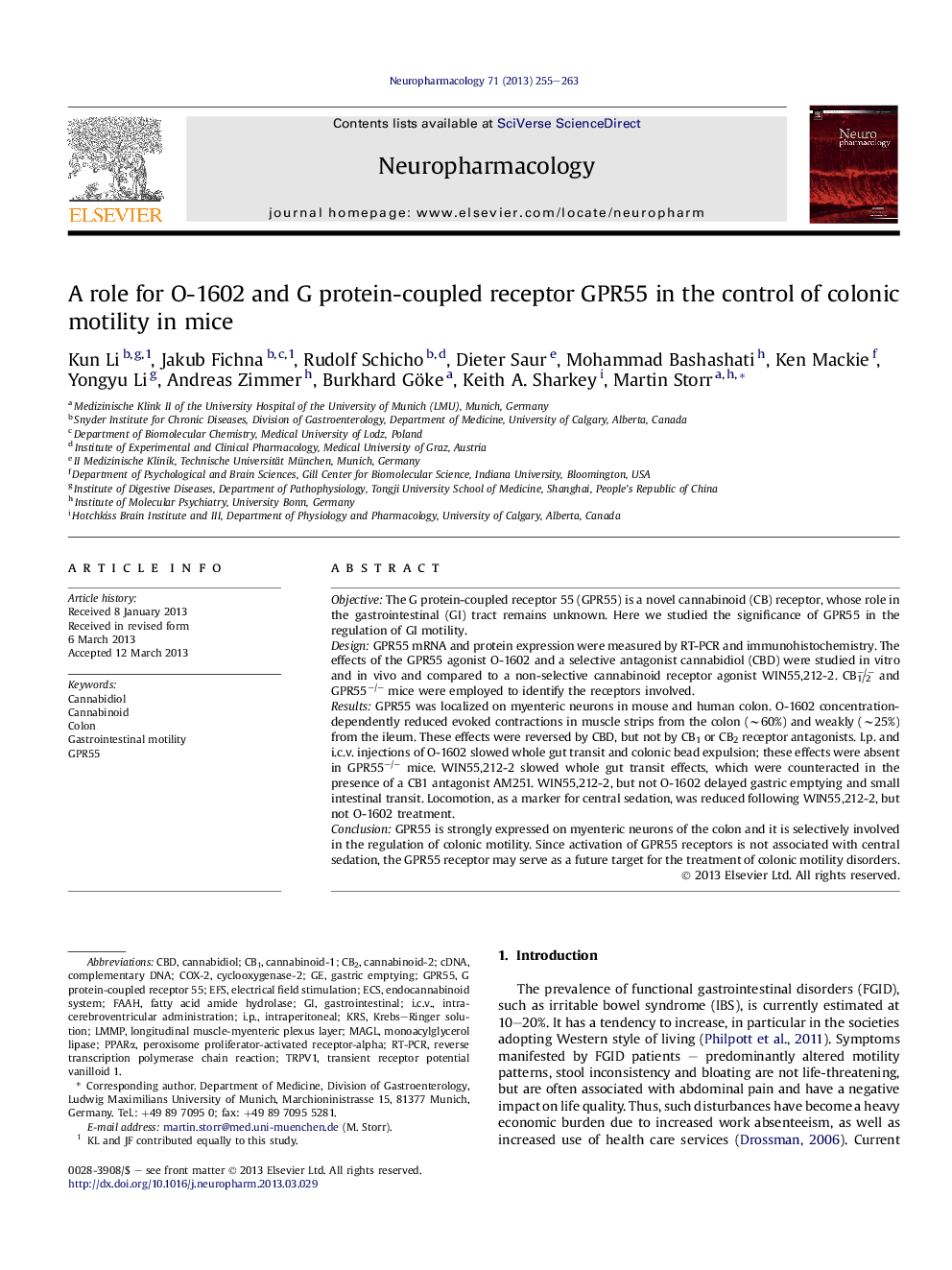| کد مقاله | کد نشریه | سال انتشار | مقاله انگلیسی | نسخه تمام متن |
|---|---|---|---|---|
| 2493432 | 1556642 | 2013 | 9 صفحه PDF | دانلود رایگان |

• G protein-coupled receptor 55 (GPR55) is a binding site for cannabinoids.
• No conclusive information was available on function of GPR55 in the GI tract.
• We found that targeting GPR55 at peripheral or central sites slows GI motility.
• Slowing effect of GPR55 activation on GI motility is primarily observed in colon.
• Targeting GPR55 may be a future tool for treatment of colonic motility disorders.
ObjectiveThe G protein-coupled receptor 55 (GPR55) is a novel cannabinoid (CB) receptor, whose role in the gastrointestinal (GI) tract remains unknown. Here we studied the significance of GPR55 in the regulation of GI motility.DesignGPR55 mRNA and protein expression were measured by RT-PCR and immunohistochemistry. The effects of the GPR55 agonist O-1602 and a selective antagonist cannabidiol (CBD) were studied in vitro and in vivo and compared to a non-selective cannabinoid receptor agonist WIN55,212-2. CB1/2−/− and GPR55−/− mice were employed to identify the receptors involved.ResultsGPR55 was localized on myenteric neurons in mouse and human colon. O-1602 concentration-dependently reduced evoked contractions in muscle strips from the colon (∼60%) and weakly (∼25%) from the ileum. These effects were reversed by CBD, but not by CB1 or CB2 receptor antagonists. I.p. and i.c.v. injections of O-1602 slowed whole gut transit and colonic bead expulsion; these effects were absent in GPR55−/− mice. WIN55,212-2 slowed whole gut transit effects, which were counteracted in the presence of a CB1 antagonist AM251. WIN55,212-2, but not O-1602 delayed gastric emptying and small intestinal transit. Locomotion, as a marker for central sedation, was reduced following WIN55,212-2, but not O-1602 treatment.ConclusionGPR55 is strongly expressed on myenteric neurons of the colon and it is selectively involved in the regulation of colonic motility. Since activation of GPR55 receptors is not associated with central sedation, the GPR55 receptor may serve as a future target for the treatment of colonic motility disorders.
Journal: Neuropharmacology - Volume 71, August 2013, Pages 255–263